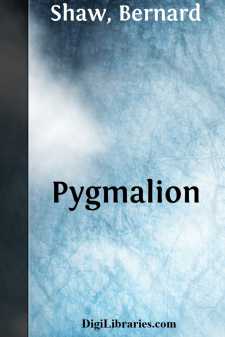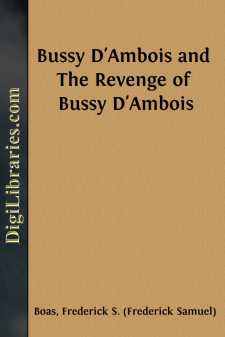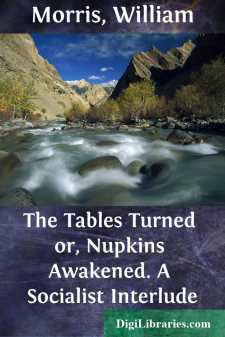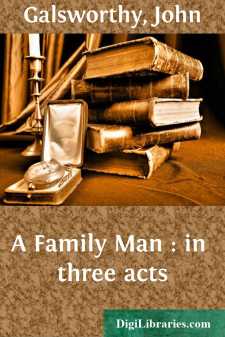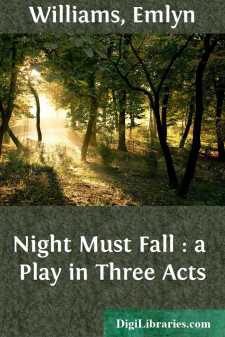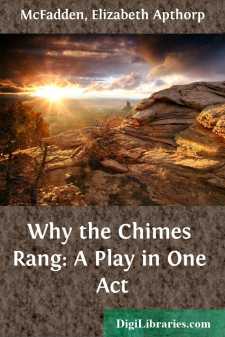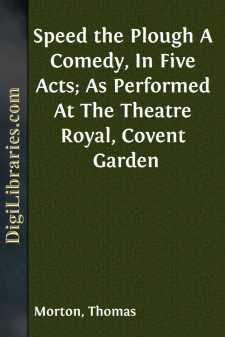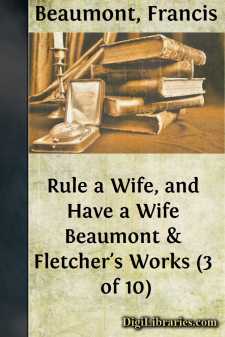Drama Books
Sort by:
by:
Bernard Shaw
As will be seen later on, Pygmalion needs, not a preface, but a sequel, which I have supplied in its due place. The English have no respect for their language, and will not teach their children to speak it. They spell it so abominably that no man can teach himself what it sounds like. It is impossible for an Englishman to open his mouth without making some other Englishman hate or despise him. German...
more...
George Chapman was probably born in the year after Elizabeth's accession. Anthony Wood gives 1557 as the date, but the inscription on his portrait, prefixed to the edition of The Whole Works of Homer in 1616, points to 1559. He was a native of Hitchin in Hertfordshire, as we learn from an allusion in his poem Euthymiæ Raptus or The Teares of Peace, and from W. Browne's reference to him in...
more...
INTRODUCTION Encouraged by the reviewer who announced that the Introduction to my previous collection of plays was the best part of the book, I venture to introduce this collection in a similar manner. But I shall be careful not to overdo it this time, in the hope that I may win from my critic some such tribute as, "Mr. Milne has certainly improved as a dramatist, in that his plays are now slightly...
more...
by:
William Morris
PART I. SCENE.—A Court of Justice. Usher, Clerk of the Court, Mr. Hungary, Q.C., and others. Mr. La-di-da, the prisoner, not in the dock, but seated in a chair before it. [Enter Mr. Justice Nupkins. Usher. Silence!—silence! Mr. Justice Nupkins. Prisoner at the bar, you have been found guilty by a jury, after a very long and careful consideration of your remarkable and strange case, of a...
more...
by:
John Galsworthy
ACT I SCENE I The study of JOHN BUILDER in the provincial town of Breconridge.A panelled room wherein nothing is ever studied, except perhapsBUILDER'S face in the mirror over the fireplace. It is, however,comfortable, and has large leather chairs and a writing table in thecentre, on which is a typewriter, and many papers. At the back is alarge window with French outside shutters, overlooking the...
more...
by:
Emlyn Williams
ACT I The sitting-room of Forest Corner, MRS. BRAMSON'S _bungalow in a forest in Essex, A fine morning in October. Centre back, a small hall; in its left side the front door of the house (throughout the play, "left" and "right" refer to the audience's left and right). Thick plush curtains can be drawn across the entrance to the hall; they are open at the moment. Windows, one...
more...
Why the Chimes Rang. The scene is laid in a peasant's hut on the edge of a forest near a cathedral town. It is a dark low-raftered room lit only by the glowing wood fire in the great fireplace in the wall to the right, and by a faint moonlight that steals in through the little window high in the left wall. This window commands a view of the cathedral and of the road leading down into the town. The...
more...
by:
Thomas Morton
This comedy excites that sensation, which is the best security for the success of a drama—curiosity. After the two first acts are over, and pleasantly over, with the excellent drawn characters of Ashfield and his wife, and the very just satire which arises from Sir Abel's propensity to modern improvements—the acts that follow excite deep interest and ardent expectation; both of which are so...
more...
by:
Francis Beaumont
Actus PrimusScena PrimaEnter Juan de Castro, and Michael Perez. Michael PerezAre your Companies full, Colonel? Juan de CastroNo, not yet, Sir:Nor will not be this month yet, as I reckon;How rises your Command? Michael PerezWe pick up still, and as our monies hold out,We have men come, about that time I thinkWe shall be full too, many young Gallants go. Juan de CastroAnd unexperienced,The Wars are dainty...
more...
by:
Aristophanes
SCENE: A farmyard, two slaves busy beside a dungheap; afterwards, in Olympus. FIRST SERVANT Quick, quick, bring the dung-beetle his cake. SECOND SERVANT Coming, coming. FIRST SERVANT Give it to him, and may it kill him! SECOND SERVANT May he never eat a better. FIRST SERVANT Now give him this other one kneaded up with ass's dung. SECOND SERVANT There! I've done that too. FIRST SERVANT And...
more...


